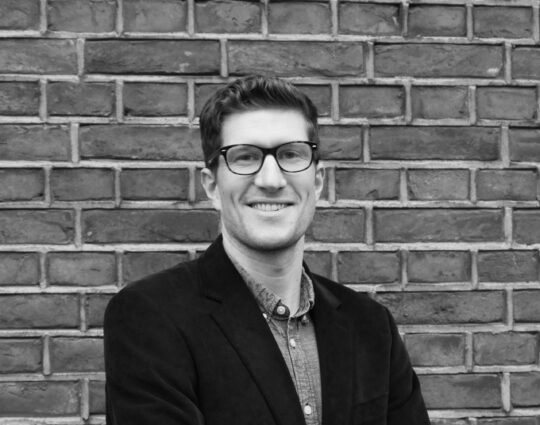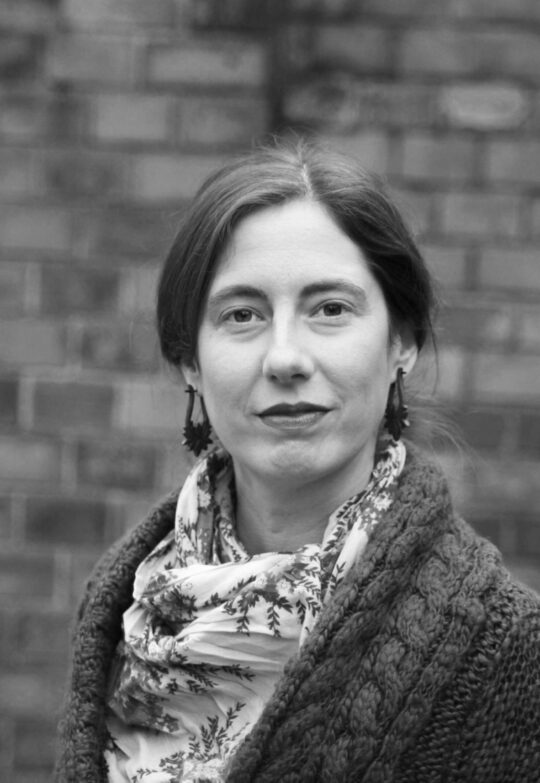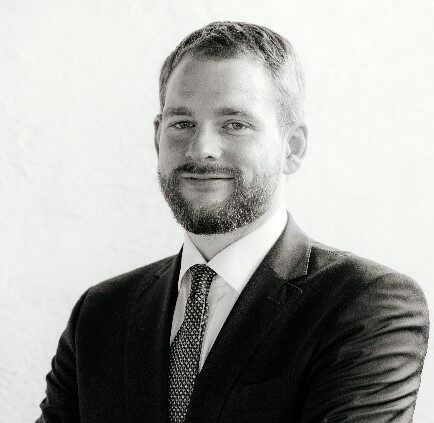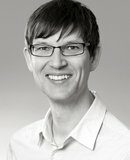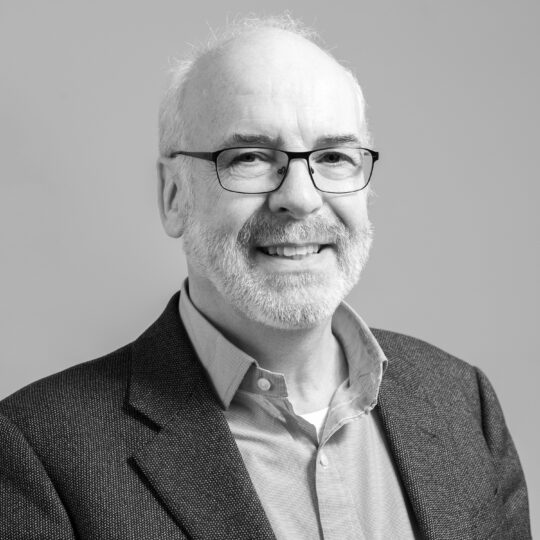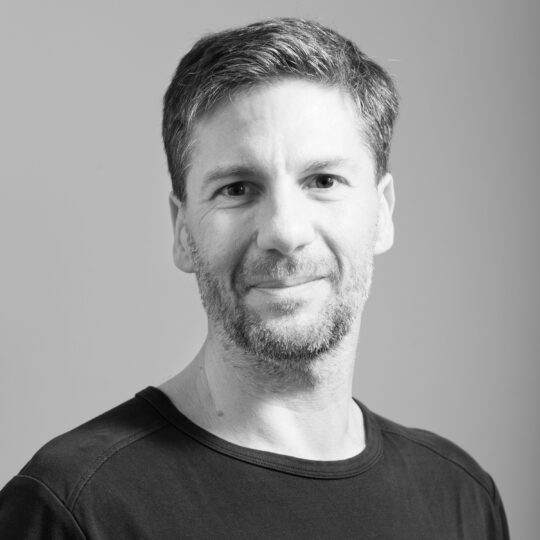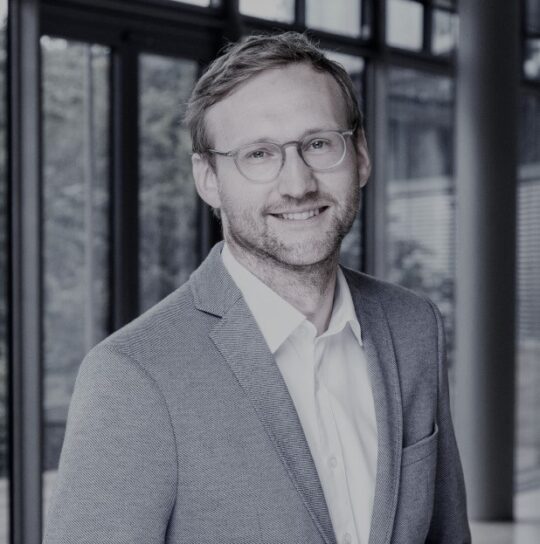Katharina Holec is a PhD student in the project CIMT (Citizen Involvement in Mobility Transitions) at Heinrich Heine University in Düsseldorf since 2019. After completing her bachelor’s degree in social sciences at Heinrich Heine University in Düsseldorf, she studied Sociology and Social Research at the University of Cologne. In her dissertation project she works on questions of descriptive and substantive representation and legitimacy through consultative participation processes concerning mobility transitions and the redistribution of urban space.
Arbeitsbereich: Sociology
Katharina Holec
7. March 2024Dr. Fabian Anicker
27. April 2023Dr. Fabian Anicker is a research associate in the project “Meinungsmonitor Künstliche Intelligenz” [MeMo:KI] at the HHU-Düsseldorf since 2022 and deputy speaker of the DGS section sociological theory. Prior to that, he served as editor of the German journal “Zeitschrift für Theoretische Soziologie” at the University of Münster from 2015 to 2022. In 2011, he earned a master’s degree in Global and International Sociology at the University of Edinburgh, having previously studied social sciences in Düsseldorf (2007 to 2010). In 2019, he received his PhD from HHU-Düsseldorf with a thesis on communicative rationality and deliberative democracy from a sociological perspective.
His research interests are political sociology, especially public sphere and democratic theory, and sociology of technology, especially artificial intelligence. He also deals with general issues of sociological theory such as theory formation and theory comparison.
Christian Koß
22. October 2022Christian Koß is a research associate at the Chair of Communication and Media Studies I at HHU-Düsseldorf. He is currently coordinating the third-party funded project ‘Discourse Data for Policy’ together with colleagues from the Heinrich Heine University Düsseldorf. Before joining the HHU-Düsseldorf, he worked at the University of Stuttgart in the third-party funded project ‘ABD – Aufbruch, Abbruch oder Durchbruch? Factors influencing scientific career paths in the natural and social sciences’ and did research on scientific career paths. He studied sociology (B.A.) and social research (M.A.) at the University of Bremen. For his PhD Christian Koß works in the field of Computational Social Science and explores artificial intelligence methods for the analysis of political discourses and dynamics.
His research focuses on network analysis and machine learning.
Dr. Bettina Ülpenich
1. March 2022Bettina Ülpenich has been working as a research assistant at the Chair of Sociology I at HHU-Düsseldorf since 2017. In addition, she has been a research associate at the Chair of Sociology II since 2021. She studied economics & politics, design technology (teaching degree) and sociology (M.A.) at the Bergische Universität Wuppertal. Her dissertation focused on the construction of categorical belonging using the example of the in-custody care of unaccompanied minor refugees.
Her research interests include the construction of categorical order, the sociology of gender, and new developments in higher education.
Dr. Johannes Krause
3. March 2021Dr. Johannes Krause has been a member of staff at the Chair of Sociology II at HHU-Düsseldorf since 2011. He studied social sciences at the University of Cologne and completed a part-time Master of Business Administration in 2019.
His research interests are physical attractiveness research and the (un)fair determinants of educational trajectories.
Dr. Ulf Tranow
21. March 2018Jun.-Prof. Dr. Ulf Tranow has been Junior Professor of Sociology at HHU-Düsseldorf since January 2013. His research interests include sociological theories of action, social mechanisms of normative integration, and collective good problems and their solutions.
In the context of DIID, he is interested in the social, societal, and institutional conditions for the formation of political trust in conflictual online deliberation processes.
Prof. Dr. Michael Baurmann
20. March 2018Prof. Dr. Michael Baurmann is Senior Professor of Sociology at the HHU-Düsseldorf. Previously, he held a chair in sociology in Düsseldorf since 1997. His research areas are general sociology, theories of social cooperation and trust, and social epistemology.
At DIID, he is interested in developing innovative concepts for interactive, dialogue-based online participation processes.
Prof. Dr. Ulrich Rosar (Vice Speaker)
12. March 2018Prof. Dr. Ulrich Rosar has held the chair of Sociology II at the Institute of Social Sciences since 2010. From 2015 until 2019 he has been Dean of the Faculty of Philosophy at HHU-Düsseldorf.
In research and teaching, he is primarily concerned with questions of political sociology, sociological inequality analysis and the methods of empirical social research.
Prof. Dr. Ulrich Rosar was re-elected as Deputy Spokesperson of the DIID by the DIID General Assembly in December 2023.
Jun.-Prof. Dr. Tobias Escher
5. March 2018Tobias Escher leads a BMBF-funded junior research group investigating the effects of participation processes on the quality and legitimacy of political decisions, especially in the context of the transformation to sustainable mobility in the local context. Previously, he supervised the DIID as well as the NRW Forschungskolleg Online-Partizipation at the HHU-Düsseldorf as scientific coordinator. He is a social scientist and holds a PhD from the Oxford Internet Institute at the University of Oxford. He can also draw on his basic knowledge of computer science when assessing the possibilities and limits of digitization.
His research focuses on the evaluation of political participation online and offline. In particular, he addresses the question of the extent to which citizen participation contributes to higher quality and legitimacy/acceptance of political decisions. He has developed a teaching module on the theory and practice of online participation, from which, among other things, a project on student participation in teaching has emerged.
Photographer: ©Tilman Schenk


